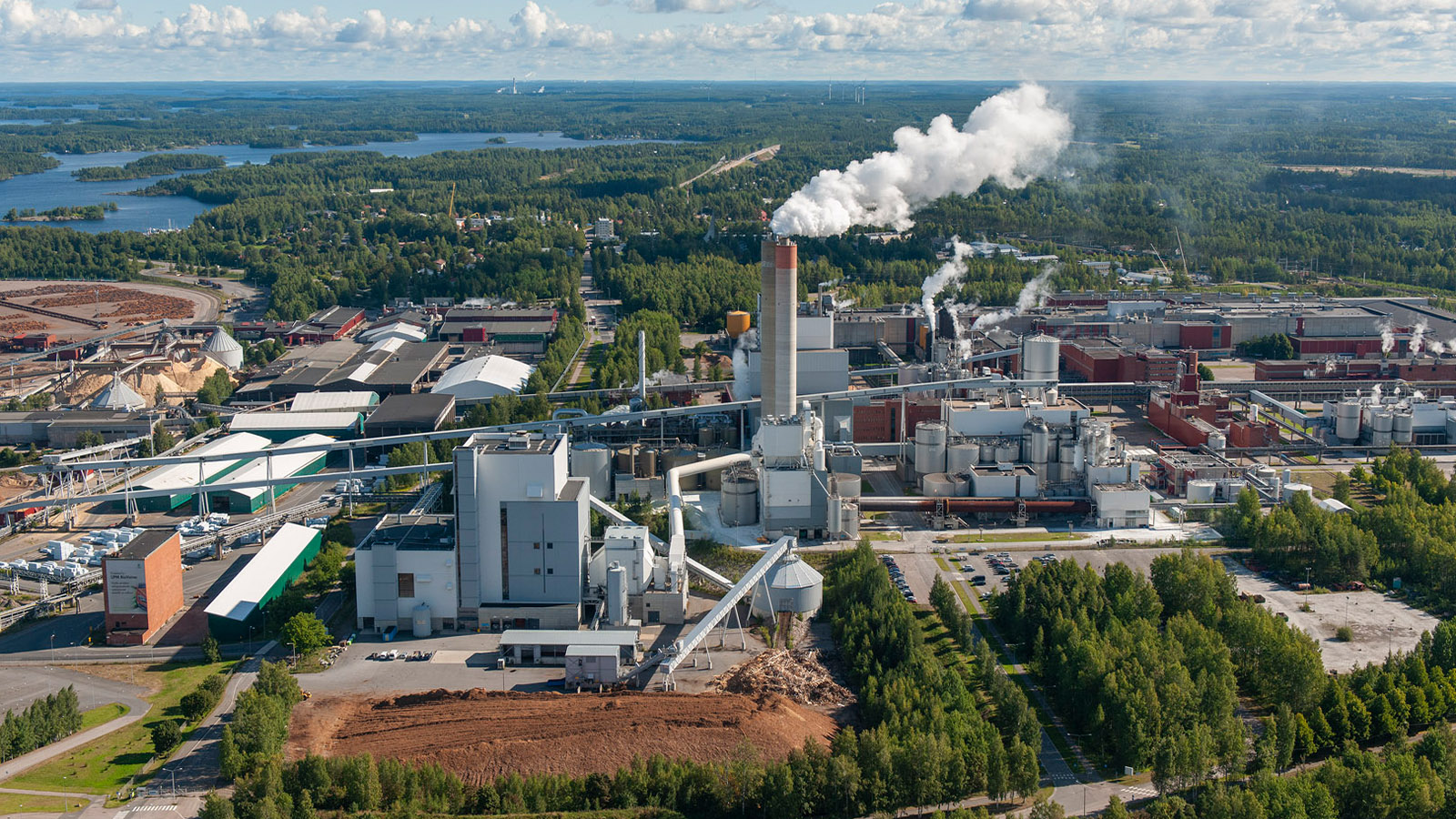
Fly ash generated by the Kaukaan Voima power plant in Lappeenranta has been granted the status of a by-product used for deep stabilisation and as a forest fertiliser by the Centre for Economic Development, Transport and the Environment. The status facilitates reuse, allowing more efficient use of the ash to replace cement in the reinforcement of soil during project development, for example. Both emissions and the use of virgin raw materials can be prevented by using the ash, resulting in environmental benefits for climate and biodiversity. Kaukaan Voima is a subsidiary of Pohjolan Voima.
“As a result of the newfound status, the fly ash generated as a by-product in energy production is no longer classified as waste in these applications, which means that an environmental permit for its use in deep stabilisation is no longer required. This streamlines the process, especially for the party reusing the ash, and saves a great deal of time. Interest in the use of ash has been growing, and we saw an increase in related contacts last summer, even before the decision on the by-product status. This is probably partly due to the current state of world affairs and the shortage of materials, as traditional materials such as cement can be replaced with the more cost-effective fly ash,” says Juha Vuolteenaho, Kaukaan Voima’s Power Plant Manager.
Over the years, Kaukaan Voima’s fly ash has been tested for various applications, both in the laboratory and in the field. Loads are currently exported for test stabilisation in infrastructure construction and for use as forest fertiliser. In pillar stabilisation, the ash is being tested in Helsinki and Turku, and approximately half the fly ash generated at the power plant was exported for use as a forest fertiliser raw material this autumn.
Tools such as by-product testing are already streamlining the permit process
In deep stabilisation, ash is used to replace cement, which has traditionally been used as a binding agent in soil stabilisation. The reuse of fly ash therefore reduces the amount of material that ends up as waste. In addition, emissions from the production of cement and the extraction of virgin raw materials are avoided.
“We are hoping that Finland will become a clean energy superpower, and the Government aims to streamline the permit processes. In my opinion, taking energy production as a whole into account, including the treatment of by-products, is important. The by-product status for fly ash is a good example of how circular economy solutions can already be accelerated and simplified. In the case of ash, at least the construction industry and forestry benefit from this approach,” says Katja Permanto, Pohjolan Voima’s Sustainability Manager.
“The circular economy and the utilisation of industrial by-products are included in Pohjolan Voima’s biodiversity programme, as actions such as the reuse of ash protect the climate and habitats in many ways. We have already made good use of the ash from our power plants, but we must always actively seek new applications.”
The ash from Pohjolan Voima’s power plants is REACH-registered and tested in accordance with the requirements, which enables commercialisation. The ash producers have been registered in the European Chemicals Agency’s database. They have material safety data sheets, which means that they also provide instructions on how to handle the ash.
Additional information:
Juha Vuolteenaho, Power Plant Manager, Kaukaan Voima Oy, juha.vuolteenaho@pvo.fi, tel. +358 50 314 3123
Katja Permanto, Sustainability Manager, Pohjolan Voima Oyj, katja.permanto@pvo.fi, tel. +358 10 478 6342
In addition to electricity, Kaukaan Voima’s combined heat and power plant produces process steam for the UPM Kaukas mills and district heat for Lappeenrannan Energia. The power plant produces 85% of the district heat used by the city of Lappeenranta. More than 80% of the fuels used by the power plant are carbon-neutral wood-based ones. Pohjolan Voima Oyj owns 54% and Lappeenrannan Energia 46% of Kaukaan Voima Oy. The biopower plant is on the UPM Kaukas mill site, and UPM Kaukas provides the power plant’s operating services.